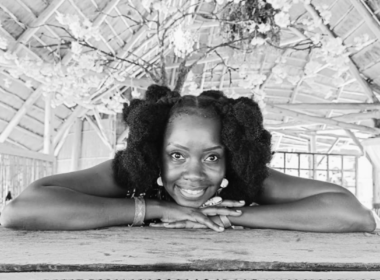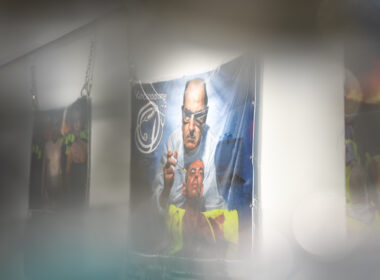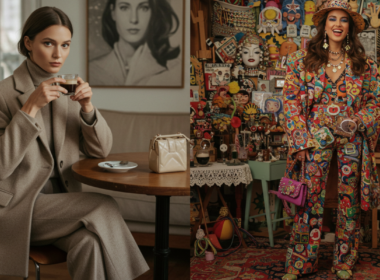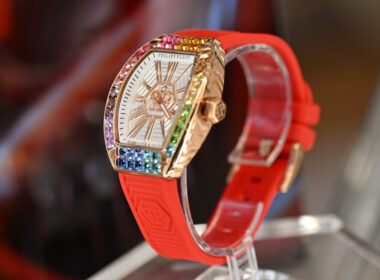When the countdown to Nairobi Fashion Week begins, the air across Kenya, and indeed East Africa, buzzes with anticipation. This year, as the curtains rise from January 29 to February 1, the 2025 edition of Nairobi Fashion Week promises to be an audacious celebration of creativity, sustainability, and African cultural heritage. The stakes are higher than ever, and this pioneering platform is set to prove why it remains an accelerator for designers across the continent.
Nairobi Fashion Week 2025: What to Expect
Since its inception in 2013, Nairobi Fashion Week (NFW) has evolved beyond being a mere showcase of clothes on a runway. Under the leadership of Kihindas Brian, founder of the Kenyan Fashion Council, NFW has become synonymous with advocacy for sustainability, cultural representation, and ethical practices. As Brian said during our recent conversation, “Nairobi Fashion Week is not just a platform for designers; it’s a call to action for an industry that needs to rethink its impact on both people and the planet.”

Brian’s initiatives, such as Fashion Frontier Africa and the Just Fashion campaign, have sparked important conversations around the environmental and economic impact of the fast fashion industry. Speaking passionately about these efforts, he explained, “Sustainability is not a trend; it’s the only way forward. We’re showing the world that African fashion is innovative, ethical, and deeply rooted in culture.” NFW has positioned itself at the crossroads of creativity and responsibility, from championing the use of African textiles to addressing the challenges posed by second-hand clothing imports.
5 Kenyan Brands You Should Not Miss
5 Coffee Places in Nairobi you should check out
Sustainable Fashion: An In-Depth Look at Nairobi Fashion Week and Fashion Frontier Africa
Threads of Change: Nairobi Fashion Week 2023, JUST Fashion Revolution
The Fashion Scene in Kenya and East Africa
Kenya’s fashion industry, though still emerging, is gaining momentum. Homegrown brands like Deepa Dosaja and Nonnistics have made their mark with sustainable and culturally resonant designs. East Africa’s design scene thrives on the interplay of heritage and modernity, with fabrics like Kikoy and Kitenge carrying stories of identity while adapting to global trends. Designers across the region are embracing upcycling, recycling, and eco-friendly production, turning constraints into canvases for innovation.
However, challenges persist. Many designers face limited access to high-quality local fabrics and global markets. Reflecting on this, Brian noted, “Our designers are incredibly resourceful, but they need more structural support—access to fabrics, training, and markets. This is where NFW steps in to bridge these gaps.”
Who’s Showcasing at Nairobi Fashion Week 2025?
The 2025 edition promises a stellar lineup of designers who embody the principles of sustainability and creativity. Among them:
- LaOculta: A women’s wear brand that fuses Kenyan and Colombian craftsmanship, creating designs that are as diverse as they are intricate.
- Maisha by Nisria: A Nakuru-based non-profit transforming discarded textiles into stunning upcycled fashion pieces.
- Kipepeo: Kipépéo is an independent female-owned online fashion label headquartered in Kenya. Their collection offers luxurious, hand-stitched pieces of uncompromising quality. Each purchase of Kipépéo’s ethically-crafted designs directly supports and empowers the African artisans behind each piece.
- SOKOLATA: A high-end and eco-responsible ready-to-wear that connects you to Africa. Created in spring 2022 by Sikoti Mbaitjongue, Sokolata is a 100% made in Africa brand that celebrates the Mother Continent and its riches.
- Native 1018: Their designs are all about blending culture with modern trends and styles. They focus on incorporating culture into their collection through accessories and prints that hold deep meaning. For the brand, it’s all about finding that balance between modernity, culture, and sustainability in their work.
- Bone: Their designs are inspired by storytelling—connecting the past with the present while envisioning a hopeful future. They focus on using recycled or repurposed materials, incorporating hand-painting techniques, and collaborating with artisans to create timeless, meaningful pieces.
These designers represent the heart of Nairobi Fashion Week’s mission: to amplify African creativity while challenging the conventions of fast fashion.
What Sets Nairobi Fashion Week Apart?
Nairobi Fashion Week is unique for its unrelenting commitment to sustainability and cultural storytelling. Unlike traditional fashion events that centre on fleeting trends, NFW delves deep into the ethos of sustainable fashion. Its innovative programmes, like Fashion Frontier Africa, equip designers with resources to embed eco-friendly practices into their work while connecting them with European markets eager for authentic, ethically produced collections.
Speaking about NFW’s approach, Brian emphasized, “We’re not in the business of trends. We’re in the business of creating lasting change—empowering designers to tell their stories in ways that resonate globally.”
Moreover, the focus on cultural preservation through fashion is unparalleled. NFW profiles under-represented African fabrics to create designs that celebrate the continent’s rich history, reminding us that fashion is more than aesthetic; it’s an archive of our stories and identities.
Beyond the Runway
The influence of Nairobi Fashion Week stretches far beyond its four-day spectacle. Through initiatives like the Just Fashion campaign, the platform has taken on global giants, advocating for ethical practices in second-hand clothing imports and waste management. Brian shared his vision: “We aim to reinvest proceeds from second-hand clothing into our local fashion ecosystem, creating a sustainable cycle that benefits our designers and communities.” His ambition to redefine the continent’s fashion industry continues to inspire critical conversations on Africa’s potential to produce its own high-quality fabrics and reduce reliance on imports.
Why You Should Care
Nairobi Fashion Week is not just a celebration of style but a clarion call for change. It is proof that Africa can lead the charge in redefining what it means to create, consume, and value fashion. As the event’s media partner, FAB L’Style Magazine invites you to mark your calendars and prepare to witness a fashion movement unlike any other. Stay tuned for exclusive coverage, interviews, and behind-the-scenes insights right here on FAB L’Style Magazine. The runway awaits.











